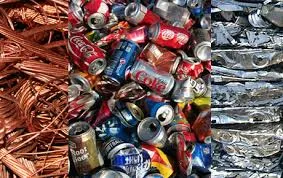

സെപ് . 02, 2024 14:46 Back to list
The Importance of Construction Waste Shredders in Sustainable Waste Management
In recent years, the construction industry has witnessed significant growth, which has inevitably led to an increase in construction waste. As urban development accelerates, managing the vast amounts of debris produced becomes a pressing concern. Construction waste shredders have emerged as a crucial solution in the quest for effective waste management and environmental sustainability.
Construction waste is composed of various materials, including concrete, wood, metal, plastics, and drywall. These materials, if not disposed of properly, can contribute to landfill overflow and environmental pollution. Shredding construction waste plays a vital role in mitigating these issues by reducing the volume of waste and facilitating recycling.
The primary function of a construction waste shredder is to break down large materials into smaller, more manageable pieces. This process not only optimizes space in landfills but also enhances the recyclability of materials. For instance, shredded concrete can be reused as aggregate for new concrete products, while shredded wood can be repurposed for particleboard or biomass energy. By enhancing material recovery, shredders help significantly reduce the environmental impact of construction activities.

Moreover, the use of shredders is economically beneficial for construction companies. By minimizing waste disposal costs and maximizing resource recovery, companies can save considerable amounts of money. Additionally, as regulations surrounding waste management become stricter, investing in shredding technology ensures compliance with local and national standards, further reducing the risk of fines or penalties.
Investing in construction waste shredders also promotes the adoption of sustainable practices within the industry. Companies that embrace such technologies signal their commitment to environmental stewardship, which can enhance their reputation and attract eco-conscious clients. As the demand for sustainable building practices grows, firms that prioritize waste reduction and recycling will likely have a competitive edge.
Moreover, advanced shredding technology incorporates features such as noise reduction and dust control, which minimize the impact of operations on the surrounding environment. Modern shredders are designed to be efficient and safe, often featuring automated systems that reduce the need for manual handling and increase overall productivity.
In conclusion, construction waste shredders are essential tools in the pursuit of sustainable construction practices. They not only facilitate the efficient breakdown and recycling of materials but also promote cost savings and compliance with environmental regulations. As the construction industry continues to evolve, prioritizing waste management through shredding technology will be crucial for fostering a more sustainable future. By embracing these innovations, companies can not only reduce their environmental footprint but also contribute to a circular economy, where materials are reused and repurposed, benefiting both the industry and the planet.
Latest news
Troubleshooting Common Eddy Separator Problems
NewsJul.04,2025
The Role of Metal Recycling Plants in Circular Economy
NewsJul.04,2025
The Impact of Recycling Line Pickers on Waste Management Costs
NewsJul.04,2025
Safety Features Every Metal Shredder Should Have
NewsJul.04,2025
How Industrial Shredders Improve Waste Management Systems
NewsJul.04,2025
How Cable Granulators Contribute to Sustainable Recycling
NewsJul.04,2025